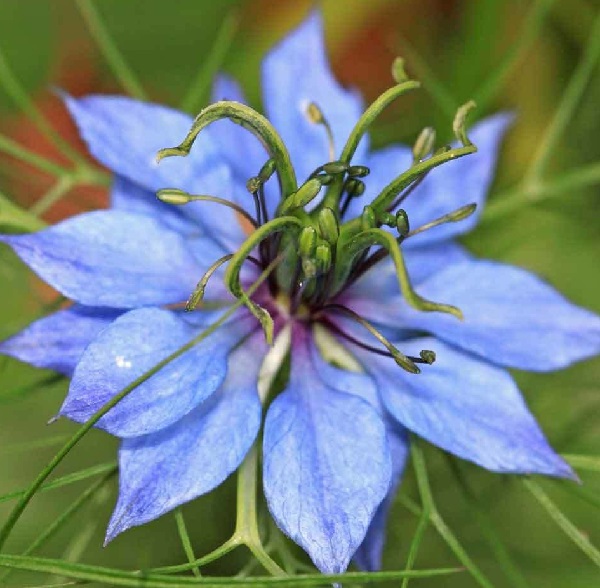Nigella sativa L.
Black cumin was already known in antiquity. It is mentioned in the Old Testament in the Book of Isaiah and by Hippocrates as well. The black cumin was also used in ancient Egypt, as evidenced by the jugs found in Tutankhamun’s grave filled with the seeds of this plant.
In some countries it has been attributed a magical power protecting against spells.
The seeds of black cumin are used to produce oil (Oleum Nigelle). Black cumin has been cultivated as a spice plant for years. Nowadays, the seeds of the black cumin, with a sharp and spicy taste, are commonly used as a seasoning for bread or cheese, as well as a substitute for pepper.
H. Strzelecka, J.Kowalski, Encyklopedia zielarstwa i ziołolecznictwa, wyd. PWN, Warszawa 2000, s. 103-104

